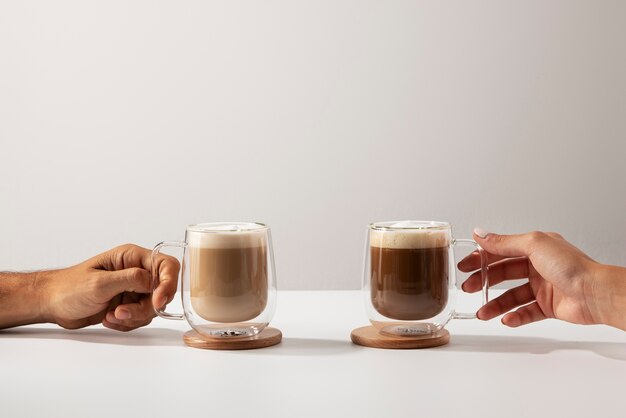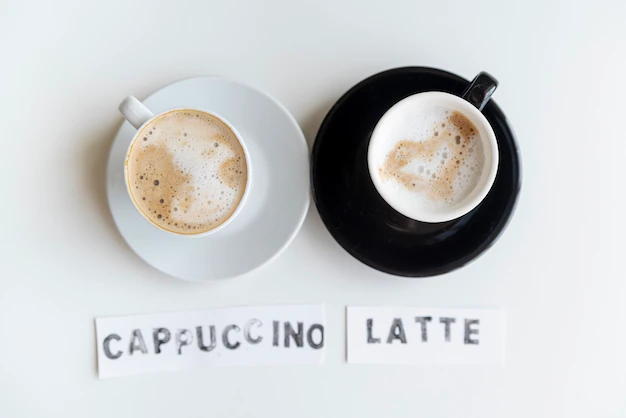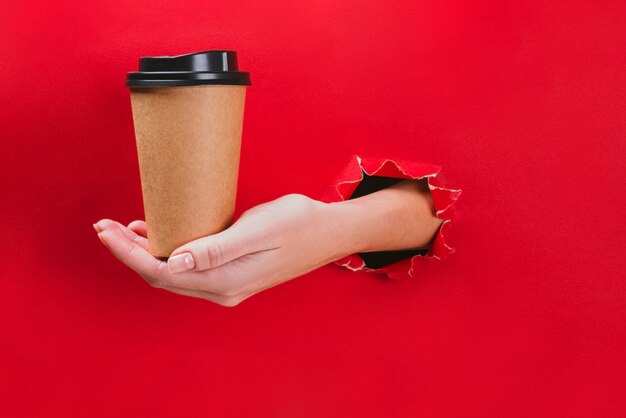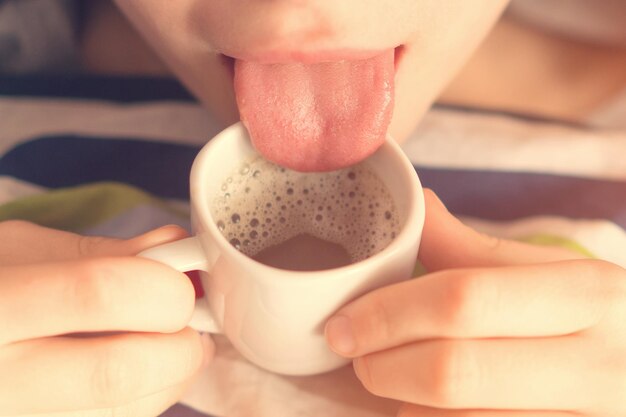Tea vs Coffee serve as the go-to beverages for a caffeine boost. Whether you’re a tea lover or a coffee enthusiast, understanding the caffeine differences between these two popular drinks can help you make an informed choice that best suits your lifestyle and health needs. In this blog post, we’ll explore the caffeine content in tea vs. coffee, their effects on the body, and which drink is better suited for different occasions.
Table of Contents
Tea vs Coffee(caffeine in) : A Quick Comparison
Caffeine is a natural stimulant found in both tea leaves and coffee beans. While both beverages provide a mental boost, they do so in slightly different ways due to their caffeine levels and additional compounds.
| Beverage | Average Caffeine Content (per 8 oz cup) |
|---|---|
| Black Tea | 40–70 mg |
| Green Tea | 20–45 mg |
| White Tea | 15–30 mg |
| Oolong Tea | 30–50 mg |
| Herbal Tea | 0 mg (naturally caffeine-free) |
| Coffee (Drip Brew) | 95–200 mg |
| Espresso (1 oz shot) | 63 mg |
As seen in the table above, coffee typically contains significantly more caffeine than tea. However, the way the caffeine interacts with the body is different due to the presence of other natural compounds in both beverages.

How Caffeine Works in Tea and Coffee
Coffee: The Quick Energy Booster
Coffee provides an almost immediate energy boost due to its high caffeine concentration. Once consumed, caffeine quickly enters the bloodstream and blocks adenosine—a neurotransmitter responsible for making you feel sleepy. This leads to increased alertness and concentration. However, the rapid absorption of caffeine from Tea vs Coffee can also lead to energy crashes once its effects wear off.
Tea: A Steady and Balanced Effect
While tea contains less caffeine than coffee, it also includes L-theanine, an amino acid that promotes relaxation and counterbalances caffeine’s jittery effects. This results in a smoother, more sustained energy boost without the abrupt crashes that Tea vs Coffee drinkers often experience. This makes tea an excellent choice for those who want a calm yet alert state of mind.
Which is Better: Tea or Coffee?
The answer to whether tea or coffee is better depends on your caffeine sensitivity, lifestyle, and personal preferences. Below are some key considerations:
Choose Coffee If:
✔ You need a quick and strong caffeine boost for work or studying.
✔ You prefer a bolder, richer taste and stronger aroma.
✔ You can tolerate higher caffeine levels without feeling jittery or anxious.
✔ You want to boost metabolism and athletic performance—caffeine in coffee has been linked to enhanced physical performance.
Choose Tea If:
✔ You prefer a gentle and prolonged energy boost without crashes.
✔ You want a variety of flavors and health benefits, as tea comes in many types (green, black, oolong, white, herbal).
✔ You are sensitive to caffeine and want to avoid jitters or sleep disturbances.
✔ You seek antioxidants and relaxation benefits—tea is rich in catechins and flavonoids, which promote overall well-being.
Health Benefits of Tea and Coffee
Both beverages offer unique health benefits beyond their caffeine content:
Benefits of Coffee:
- May boost cognitive function and reduce the risk of neurodegenerative diseases like Alzheimer’s and Parkinson’s.
- Contains powerful antioxidants that help fight inflammation.
- May enhance metabolism and aid in weight management.
- Can lower the risk of type 2 diabetes and improve heart health when consumed in moderation.
Benefits of Tea:
- Contains L-theanine, which promotes relaxation and focus.
- Rich in antioxidants like catechins, which support heart health and reduce inflammation.
- Some teas (such as green tea) may aid in weight loss by boosting metabolism.
- Herbal teas (like chamomile and peppermint) are caffeine-free and can aid in digestion and sleep.
The Verdict: Which One Should You Drink?
Ultimately, the choice between tea and coffee depends on your caffeine needs, lifestyle, and taste preferences. If you need an instant and strong energy boost, Tea vs Coffee is the way to go. However, if you prefer a steady and balanced caffeine release, tea may be the better option.
Many people enjoy both beverages at different times of the day—Tea vs Coffee in the morning for a wake-up jolt and tea in the afternoon for a gentle pick-me-up. The key is to listen to your body and consume caffeine in moderation to avoid negative side effects like insomnia, anxiety, or digestive issues.
Final Thoughts
Whether you prefer the bold intensity of coffee or the calming balance of Tea vs Coffee, both drinks have their unique place in a healthy and productive lifestyle. Understanding the caffeine differences and benefits can help you make the best choice based on your daily needs.
Are you a tea drinker, a Tea vs Coffee lover, or do you enjoy both? Share your thoughts in the comments below!




